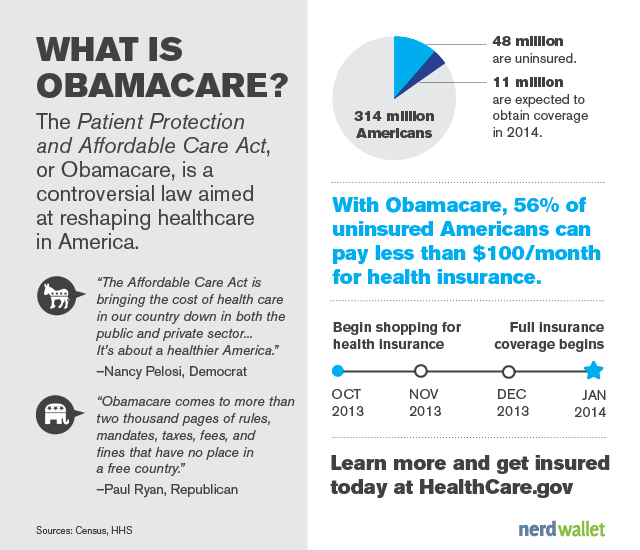Are you confused about whether you qualify for ObamaCare, the Affordable Care Act’s health insurance program? Don’t worry, you’re not alone. Navigating the intricate eligibility requirements can be a daunting task, but we’re here to simplify it for you. In this comprehensive guide, we’ll unlock the secrets behind who can enroll in ObamaCare and how to take advantage of this life-changing opportunity.
Understanding the Basics: Who Can Apply?
Before diving into the nitty-gritty details, let’s start with the fundamental eligibility criteria for ObamaCare:
- Residency Requirement: You must be a resident of the United States. This means you are considered a “resident” for tax purposes by the Internal Revenue Service (IRS).
- Citizenship Status: You must be a U.S. citizen, U.S. national (including individuals born in American Samoa or abroad with American Samoan parents), or a lawfully present non-citizen immigrant.
- Incarceration Status: You cannot be currently incarcerated.
It’s important to note that if you have Medicare coverage, you cannot enroll in a Marketplace health or dental plan through ObamaCare.
Digging Deeper: Income and Household Size Factors
One of the primary factors that determine your eligibility for ObamaCare is your household income level. The Affordable Care Act provides financial assistance in the form of premium tax credits and cost-sharing reductions to make health insurance more affordable. Here’s how it works:
- If your household income falls between 100% and 400% of the Federal Poverty Level (FPL), you may qualify for premium tax credits to lower your monthly insurance premiums.
- If your household income is between 100% and 250% of the FPL, you may also be eligible for cost-sharing reductions, which can help lower your out-of-pocket costs like deductibles, copayments, and coinsurance.
Your household size plays a crucial role in determining your eligibility for these financial assistance programs. The larger your household, the higher the income threshold for qualifying.
Special Circumstances: Exceptions and Considerations
While the eligibility criteria may seem straightforward, there are certain special circumstances and exceptions to keep in mind:
- Medicaid Eligibility: Depending on your state’s Medicaid expansion status and your household income, you may be eligible for Medicaid coverage instead of ObamaCare. Medicaid generally covers individuals and families with lower incomes.
- Job-Based Insurance: If you have access to affordable, minimum value job-based insurance, you may not be eligible for premium tax credits through ObamaCare.
- Life Events: Certain life events, such as getting married, having a baby, moving, or losing other health coverage, may qualify you for a Special Enrollment Period (SEP). This allows you to enroll in ObamaCare outside of the annual Open Enrollment window.
It’s crucial to carefully evaluate your specific situation and provide accurate information when applying for ObamaCare to ensure you receive the appropriate financial assistance and coverage.
Navigating the Application Process
Now that you have a better understanding of the eligibility criteria, it’s time to dive into the application process. Here’s a step-by-step guide to help you get started:
- Gather Required Documents: Collect the necessary documents, such as proof of income, citizenship or immigration status, and household information.
- Visit the Health Insurance Marketplace: Head to the official Health Insurance Marketplace website (Healthcare.gov) or your state’s Marketplace website if your state runs its own exchange.
- Create an Account: Set up an account and provide your personal and household information.
- Apply for Coverage: Complete the application process by providing details about your income, household size, and any special circumstances.
- Review Eligibility Determination: Once your application is processed, you’ll receive an eligibility determination that outlines your options for coverage and financial assistance.
- Enroll in a Plan: If eligible, select a health insurance plan that best fits your needs and budget.
Remember, if you have any questions or need assistance during the application process, you can reach out to trained navigators or healthcare professionals for guidance.
Staying Informed and Up-to-Date
Eligibility requirements and regulations surrounding ObamaCare are subject to change, so it’s essential to stay informed and up-to-date. Keep an eye out for any updates or policy changes that may affect your eligibility or coverage options.
Additionally, be aware of important deadlines, such as the annual Open Enrollment Period, which typically runs from November to mid-December each year. Missing these deadlines could result in having to wait until the next enrollment period to obtain coverage, unless you qualify for a Special Enrollment Period.
Final Thoughts
Navigating the world of ObamaCare eligibility can be complex, but understanding the requirements is crucial to accessing affordable health coverage. By following the guidelines outlined in this guide and providing accurate information during the application process, you’ll be well on your way to securing the health insurance coverage you and your family need.
Remember, taking care of your health should be a top priority, and ObamaCare is designed to make that more attainable for millions of Americans. Don’t hesitate to seek help from professionals or online resources if you have any questions or concerns along the way. Your well-being is worth the effort.
Obamacare Explained: Understanding the Affordable Care Act
FAQ
What is the highest income to qualify for Obamacare?
|
Household size
|
Min. income
|
Typical max. income
|
|
1 person
|
$14,580
|
$58,320
|
|
2
|
$19,720
|
$78,880
|
|
3
|
$24,860
|
$99,440
|
|
4
|
$30,000
|
$120,000
|

